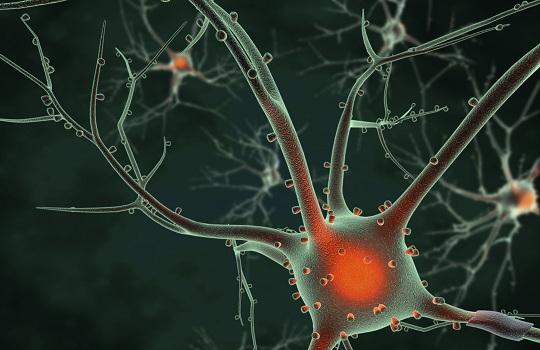
Gary Luffman is an Occupational Psychologist and Director of think. change. consulting. Gary and the think. change. team focus on bringing together business expertise, neuroscience and psychology to help understand more about our own and others’ brains. This forms the basis of practical and tangible applications in the workplace to help individuals and organisation succeed in sustainable ways.
1. What’s getting researchers excited at the moment in the fields of workplace psychology and neuroscience?
A couple of things that are currently grabbing researchers – and media – attention are mirror neurons and cognitive enhancing drugs (neuroenhancers). Mirror neurons are regarded by some as a special class of brain cells that fire not only when an individual performs an action, but also when the individual observes someone else make the same movement i.e. smiles, grimaces. This has been, and remains, a contentious area of neuroscience with some researchers going so far as to state that mirror neurons have: shaped civilisation, underlie empathy and play a major role in learning. Others, however, are less enthusiastic and take a much more cautious view of what part mirror neurons play in development and behaviour.
Interested in neuroscience?
We cover neuroscience and HR extensively on HRZone. Check out a a sample of our neuroscience and psychology-related content to whet your appetite.
Neuroenhancers are a mix of prescription and non-prescription drugs that people take to, for example, help sharpen their cognitive function, increase their ability to maintain focus, reduce sleep levels etc. As you can imagine there is great deal of interest in how these drugs affect the brain from a functioning and potential side effects point of view. I can imagine there could be some very interesting policy meetings in the future for organisations to explore questions such as: “had they taken neuroenhancers at the time of the incident?” or “if there are no known detrimental effects of taking neuroenhancers, only increases in productivity and quality, why don’t we promote their use to our staff?”
2. HR is very excited about neuroscience and psychology because it seems like it’s bringing ‘grounding’ to what has always been an art. Do you agree with this? What do you see as the main benefit of neuroscience and psychology on the HR function?
I think there will always be an element of ‘art’ needed when dealing with people as we are not able to 100% predict people’s behaviour – something I am quite glad about actually. But HR is right to be getting excited about what disciplines such as neuroscience and psychology can offer as they help to make sense of what can often be a minefield i.e. the reactions and interactions of people in the workplace. This ‘making sense’ can help give people greater confidence to make decisions and actions that concern people. As for giving grounding to what has been an art, this is exactly what is happening, and in many cases the science backs up what has been intuitively found to work, which is an added bonus.
The outputs from both areas of research provide valuable frameworks for understanding one’s own and others behaviours, which can then inform a wide range of work-based activities from planning, managing and embedding change to managing our time or managing people more generally.
3. How is neuroscience/psychology informing the talent management debate?
Understanding people better is providing valuable insights into how to develop and manage individuals and groups more effectively. In particular, neuroscience and psychology are helping to focus and tailor development activities for talent groups once they are identified. Sometimes knowing what not to do can be a very useful place to start and neuroscience and psychology can help highlight potential pitfalls and challenges of setting up talent pools in certain ways or managing groups in certain ways.
However, the overarching talent message from neuroscience is that we are all able to extend our abilities and skills given the right conditions and motivation.
4. What are three key neuroscience findings or ideas that are gaining traction with forward-thinking employers recently?
- Understanding habits – how they form, how they remain and how they can be altered. This is the key to developing more agile employees and workforces. By understanding the mental and social processes that effect habits you have the inside track on what to do or not do in your workforce management activities.
- Neuroplasticity – closely related to habits is understanding how the brain is able to re-wire itself. Until not too long ago it was believed that the adult brain was incapable of major change – which could be a very limiting and even depressing thing to believe, especially so if your role is all about development and learning. But science has proven that the brain remains plastic i.e. malleable throughout our lives and our understanding of what helps and hinders this process is growing. Employers can obviously use this to help design their communication and development activities so that they play to the brain’s strengths and natural inclinations.
- Processing limitation – There are some key processing limitations that our brains bump up against, especially so in today’s often frantic and intense workplace. These limitations can have knock-on effects such as the brain developing habituated responses (that don’t need thinking about) or deferring to default settings when tired, faced with information overload or feeling stressed. Knowing more about these limitations allows us to give people practical tools and tips on how to manage themselves, work activities and others in line with these limitations. Getting people to recognise that these limitations apply to all of us, and not just to others, can be a challenge.
Five neuroscience articles for you to read
Finding the X Factor – the neuroscience of presence
Employees themselves seem to find the three aforementioned topics equally useful and valuable. This may be for different reasons but invariably the HR/L&D community want similar things as individuals, i.e. do a great job in a sustainable and successful manner. The three areas mentioned help individuals to work more efficiently and effectively and develop more agile mindsets to help them in their careers but we use the same brain outside of work as at work and people quickly realise that increasing their understanding of the brain helps with their wider life and not just the world of work.
Knowing how to keep the brain healthy also tends to be of interest to individuals as there are some key things around sleep, diet and exercise for example that can really support the brain; equally there are some aspects of modern living that are not ‘brain-friendly’ that we need to guard against.
6. What are the most common unconscious biases you see in leaders and senior decision-makers?
Possibly one of the most common and significant ones is thinking ‘Yes, I believe all of this brain science, but you know what? It doesn’t really apply to me. I can see that others are habit slaves and driven by emotions but I am in conscious control of my brain and I work in a rational, logical way’. We know that all conscious thoughts pass through and are influenced by the emotional part of the brain before they reach the rational centre and this has a real impact on how we interpret information and make decisions. We also know that people need to ‘join their own dots’ if they are to have ‘light bulb moments’ that lead to lasting change so there is no point in trying to coerce people into accepting that they too are emotionally driven, rather it is about providing the time, space and structure that allows them to work it out for themselves.
7. “The more we understand people, the better we do business.” Is this true? Or does increased complexity lead to option paralysis/difficult prioritising initiatives and ideas?
Yes, I think it is true and we have a significant body of organisation development evidence to support both this and the contrary i.e. “the less we understand people, the worse we do business”. From a neuroscience perspective we know that a sense of certainty and control is crucial for the brain to be in a relaxed and comfortable state, and it is really only when it is in this state that it can bring its amazing capabilities to the issues at hand. We know how difficult people find it to understand behaviour (their own and others) in the workplace and neuroscience and psychology can bring practical frameworks, insights and tools to this arena. This support helps give the brain a greater sense of control by, for example, being better able to understand and predict behaviour, which in turn allows the brain to ‘be at it’s best’ more often.









